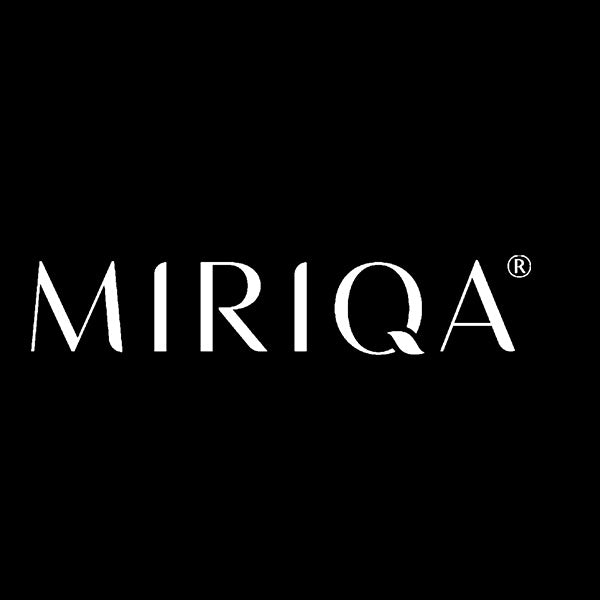Oral Sunblock: Myth or Reality? Understanding Its Efficacy and Benefits
In the ever-evolving landscape of skincare, and a market dominated by lotions and creams, oral sunblock has emerged as a groundbreaking alternative, capturing public interest as a unique and revolutionary option for sun protection. These oral sunblocks, typically available in pill form, offer a compact and convenient way to protect your skin.
As oral sunblock supplements gain popularity, especially among those seeking a convenient complement to traditional sunscreens, an important question arises: Can these supplements protect your skin as effectively as topical sunscreens? While it might seem implausible that a pill could offer the same level of protection as a lotion that creates a physical barrier against UV radiation, it's essential to understand that oral sunblocks are designed to enhance, not replace, traditional methods. They provide additional, well-rounded protection, working from within to complement the external defence provided by topical sunscreens.
Join us as we delve into the science behind oral sunblock, exploring its efficacy and whether it can truly replace your regular sunblock. This investigation will help you make an informed decision about incorporating oral sunblock into your skincare routine.
What is Oral Sunblock?

Oral sunblock is the latest innovative approach to sun protection, designed to be taken as a single dose in pill form, unlike traditional sunscreens. These oral sunblocks function as dietary supplements with the primary goal of protecting the skin from within, offering a convenient and comprehensive method of shielding the skin from the sun's harmful UV rays.
The protective effects of oral sunblocks come from common ingredients including olives, l-cysteine, and white tomatoes amongst other ingredients.
Despite their growing popularity, oral sunblocks often face scepticism and numerous questions about their efficacy. Many people wonder how effective these supplements truly are in comparison to traditional topical sunscreens, and whether they can provide sufficient protection on their own. While research indicates that oral sunblocks can offer additional protection and benefits, they are generally recommended to be used in conjunction with topical sunscreens for optimal sun protection.
How Oral Sunblocks Work
Imagine shielding your skin from the sun’s harmful UV rays with a simple pill. It sounds like science fiction but the reality of oral sunblock is grounded in fascinating science. These up-and-coming innovative marvels of science work from the inside out, enhancing your skin’s natural defences against UV radiation and offering a new frontier in sun protection.
Oral sunblocks are not your everyday sugar pills, they are packed to the brim with powerful ingredients which work synergistically to protect your skin around the clock! Let’s dive into the key components stored within these tiny pills and uncover the science behind how they aid in the safeguarding of our skin from the sun.
Key ingredients
Tomatoes with Colourless Carotenoids (or white tomatoes), these hidden gems include phytoene and phytofluene which absorb UV light without adding any colour to your skin. They can be found in a specially bred family of tomatoes and aid in the neutralisation of free radicals generated from UV exposure, naturally fortifying your skin’s defences and maintaining its youthful glow.
Olives and Olive Leaf Extract can be used for more than household ingredients for salads or various food items, they are also potent skin protectors. Rich in antioxidants like hydroxytyrosol and oleuropein, olives aid in combating oxidative stress caused by UV radiation. They also promote collagen production and reduce inflammation, making your skin more resilient against sun damage.
L-Cysteine, an essential amino acid especially crucial for boosting glutathione levels, which is one of the body’s most powerful antioxidants. This protects your skin from oxidative stress to reduce signs of ageing and risk of skin cancer.
Glutathione, a master antioxidant that detoxifies harmful substances and combats oxidative stress, maintaining the integrity of skin cells and supports the repair of UV-induced DNA damage.
Together, these ingredients form a symphony of protection as they neutralise free radicals, reducing UV-induced cellular damage and oxidative stress, and inflammation.
The allure of oral sunblocks lies not only in their convenience but in the robust protection they promise. By harnessing the power of nature’s most potent ingredients, these supplements aim to transform how we think about sun protection. Imagine a world where a simple pill can enhance your skin’s defence against the sun, reducing the need for constant reapplication of creams and lotions. This is the revolutionary promise of oral sunblocks—an exciting step forward in skincare innovation.
The Promise of Oral Sunblock
Oral sunblocks are making waves in the skincare world; not only shielding your skin from the unyielding effects of UV-radiation, it also provides a myriad of other beneficial effects extending far beyond what traditional sunscreens can offer such as, skin whitening, antioxidant effects, and anti-ageing properties.
The promise of oral sunblocks is indeed captivating. By offering increased UV protection, skin whitening, antioxidant effects, and anti-aging properties, these supplements present a comprehensive approach to skincare. Although they are not a complete substitute for topical sunblock they allow for a more effortless and consistent sun protection regimen when used in conjunction with them and potentially transforming how we care for our skin. As the science behind these products continues to evolve, oral sunblocks may well become a staple in modern skincare, providing a revolutionary way to protect and enhance our skin’s health and appearance.
Understanding Ultraviolet Radiation (UVR) Protection
Ultraviolet radiation (UVR) from the sun is a major player in skin health, with UVA and UVB rays causing both immediate and long-term damage. UVA rays can penetrate deep into the skin, speeding up the ageing process and increasing the risk of skin cancer, while UVB rays affect the surface, leading to sunburns and contributing to skin cancer development. Protecting your skin from these harmful rays is crucial to maintaining its health and youthful appearance.
The dangers of prolonged UV exposure go beyond a painful sunburn. While sunburn, caused by UVB rays, results in red, blistered skin, repeated exposure accelerates skin ageing, resulting in wrinkles, a leathery texture, and dark spots. More alarmingly, the DNA damage from both UVA and UVB radiation can lead to skin cancers, such as basal cell carcinoma, a type of skin cancer which develops on areas on the skin exposed to the sun, squamous cell carcinoma, which is the second most common form of skin cancer, characterised by abnormal and accelerated growth of squamous cells, and melanoma which is a form of skin cancer originating from the melanocytes.
Mitigating these risks requires a multifaceted approach to sun protection. Topical sunscreens, protective clothing, seeking shade, and innovative oral sunblock supplements all play a role in shielding your skin from harmful UV rays. By embracing these comprehensive protection strategies, you can enjoy the sun's warmth safely, ensuring your skin remains healthy and youthful for years to come.
MIRIQA® Professional Skin Nutrition Supplement

Unlock the transformative power of MIRIQA® Skin Nutrition Supplement, a blend of nature's finest ingredients meticulously crafted to enhance skin health and vitality. At its core lies a trio of key ingredients, harnessing the unique properties of tomatoes with colourless carotenoids, olive extract, and L-Cysteine, delivering unparalleled benefits for your skin.
MIRIQA® Skin is more than just an oral sunblock; it's a comprehensive skin nutrition supplement. Formulated with a powerful combination of antioxidants and natural extracts, MIRIQA® Skin aims to enhance your skin’s defence against the sun while improving its overall health. The key ingredients in MIRIQA® Skin include PhytoflORAL, or white tomatoes with colourless carotenoids, olive extract, and L-cysteine. Each of these components plays a vital role in protecting and rejuvenating the skin.
MIRIQA® Skin offers robust protection against UV damage with PhytoflORAL®, also known as white tomatoes, a tomato-derived extract rich in phytoene and phytofluene, which are colourless carotenoids. These compounds reduce inflammation, oxidative stress, and DNA damage caused by UV exposure. The supplement's combination of L-cysteine and these colourless carotenoids aids in lightening and preventing pigmentation, leading to a brighter complexion and a more even skin tone. Additionally, MIRIQA® promotes youthful, glowing skin by enhancing collagen production and reducing inflammation with ingredients like olive extract or hydroxytyrosol. This multifaceted approach makes MIRIQA® Skin an effective solution for maintaining beautiful, healthy skin, offering comprehensive sun protection and overall skin enhancement. Whether you’re looking to bolster your sun protection regimen or improve your skin’s appearance, MIRIQA® Skin provides a promising and convenient option.
Olive Extract: Olive extract is rich in polyphenols, particularly hydroxytyrosol, which has potent antioxidant and anti-inflammatory properties. These compounds help protect the skin from oxidative stress and UV-induced damage. Olive extract also promotes skin hydration and elasticity, contributing to a more youthful and radiant appearance. By reducing inflammation and supporting skin barrier function, olive extract enhances the overall health and resilience of the skin.
L-Cysteine: L-Cysteine is an amino acid that plays a crucial role in the synthesis of glutathione, one of the body's most important antioxidants. By boosting glutathione levels, L-cysteine helps to protect the skin from oxidative stress and UV damage. It also supports the production of collagen, which is essential for maintaining skin structure and elasticity. Additionally, L-cysteine aids in the repair of damaged skin and can help to lighten hyperpigmentation, leading to a more even skin tone.
Oral sunblocks offer a promising addition to use alongside traditional sun protection methods, like topical sunscreens. They provide several key benefits and have demonstrated efficacy in enhancing skin health and UV protection. Incorporating oral sunblock into your daily routine can be a valuable step towards enhanced skin protection and health.
Products like MIRIQA® Professional Skin Nutrition Supplement are specifically formulated to offer these advantages. They combine scientifically proven ingredients to bolster your skin’s defences against UV radiation, reduce oxidative stress, and maintain a youthful appearance.
Meléndez-Martínez, A. J., Stinco, C. M., & Mapelli-Brahm, P. (2019, May 16). Skin carotenoids in public health and nutricosmetics: The emerging roles and applications of the UV radiation-absorbing colourless carotenoids phytoene and phytofluene. Nutrients. https://www.ncbi.nlm.nih.gov/pmc/articles/PMC6566388/
Nestor, M. S., Berman, B., & Swenson, N. (2015, February). Safety and efficacy of Oral Polypodium leucotomos extract in healthy adult subjects. The Journal of clinical and aesthetic dermatology. https://www.ncbi.nlm.nih.gov/pmc/articles/PMC4345929/
Parrado, C., Philips, N., Gilaberte, Y., Juarranz, A., & González, S. (2018, June 26). Oral photoprotection: Effective agents and potential candidates. Frontiers in medicine. https://www.ncbi.nlm.nih.gov/pmc/articles/PMC6028556/
Segars, K., McCarver, V., & Miller, R. A. (2021, February). Dermatologic applications of polypodium leucotomos: A literature review. The Journal of clinical and aesthetic dermatology. https://www.ncbi.nlm.nih.gov/pmc/articles/PMC8211346/
Barbaro, B., Toietta, G., Maggio, R., Arciello, M., Tarocchi, M., Galli, A., & Balsano, C. (2014, October 14). Effects of the olive-derived polyphenol oleuropein on human health. International journal of molecular sciences. https://www.ncbi.nlm.nih.gov/pmc/articles/PMC4227229/
Jin, S.-G., Padron, F., & Pfeifer, G. P. (2022, September 8). UVA radiation, DNA damage, and melanoma. ACS omega. https://www.ncbi.nlm.nih.gov/pmc/articles/PMC9494637/





